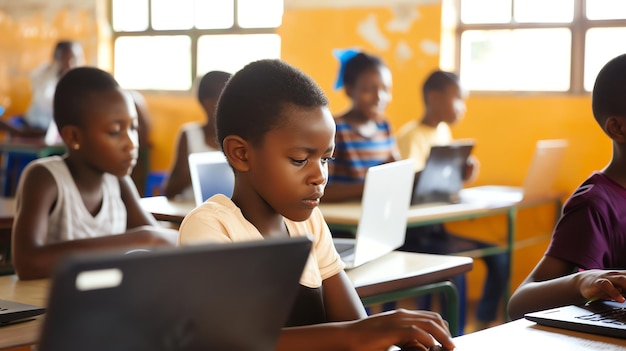Safeguarding Heritage: Building Culturally Responsive AI for Africa’s Future


Quidah is an online platform that connects investors with curated opportunities and expert insights on Africa’s emerging markets, while offering businesses promotional services, partnership facilitation, and market intelligence to attract capital and grow their operations.
Industries
AI is increasingly heralded as a transformative force in education across Africa—promising personalised learning, teacher assistance, and improved student outcomes. But beneath this optimism lies a profound challenge: AI is not culturally neutral. The assumptions, values, and worldviews embedded in these tools often stem from Western contexts. When leveraged in African classrooms, they risk marginalising indigenous knowledge, languages, and pedagogies.
Traditional learning in many African communities is communal, contextual, and deeply tied to local customs, oral histories, agricultural techniques, and spiritual practices. Yet AI-driven curricula frequently overlook this rich tapestry. Students end up exposed to generic, industrialised content that eclipses local knowledge systems. Worse still, many AI tools operate in dominant global languages—English or French—leaving little room for African tongues that carry unique worldviews. The result is a technological echo of colonial-era educational models, raising fears of cultural erasure through automated instruction.
Africa’s reliance on AI technologies designed by external entities—often from the Global North—can reproduce power imbalances. Without intentional adaptation, AI may become yet another vector of digital colonialism, reinforcing foreign norms while undermining local identity.

But there is hope. Communities and organisations are taking ownership. Initiatives like Masakhane involve African students and researchers in building language processing tools rooted in local idioms, ensuring that education remains culturally and linguistically relevant. Similarly, pilot programs in countries like Ghana and Côte d’Ivoire are creating AI systems that reflect national curricula, local languages, and cultural contexts. They strive to blend global technological know-how with African traditions, creating a laboratory of innovation that bridges tech and culture.
Avoiding cultural displacement will require sustained investment in local capacity—creating AI tools designed by Africans, for Africans. Governments, educational institutions, and the private sector must collaborate on STEM training and digital literacy, ensuring that AI becomes an enabler of local empowerment rather than a driver of dependency.
For businesses and investors, this challenge is also an opportunity. There is growing demand for homegrown AI platforms tailored to African educational contexts—offering fertile ground for startups working in multilingual NLP, culturally adaptive content, and participatory education tech solutions. Investors stand to gain from the rise of EdTech platforms that embed African values and language into AI systems. By backing ventures that champion culturally aware AI, investors can align profits with social impact, nurture local ecosystems, and be part of Africa’s next generation of digital innovation.


